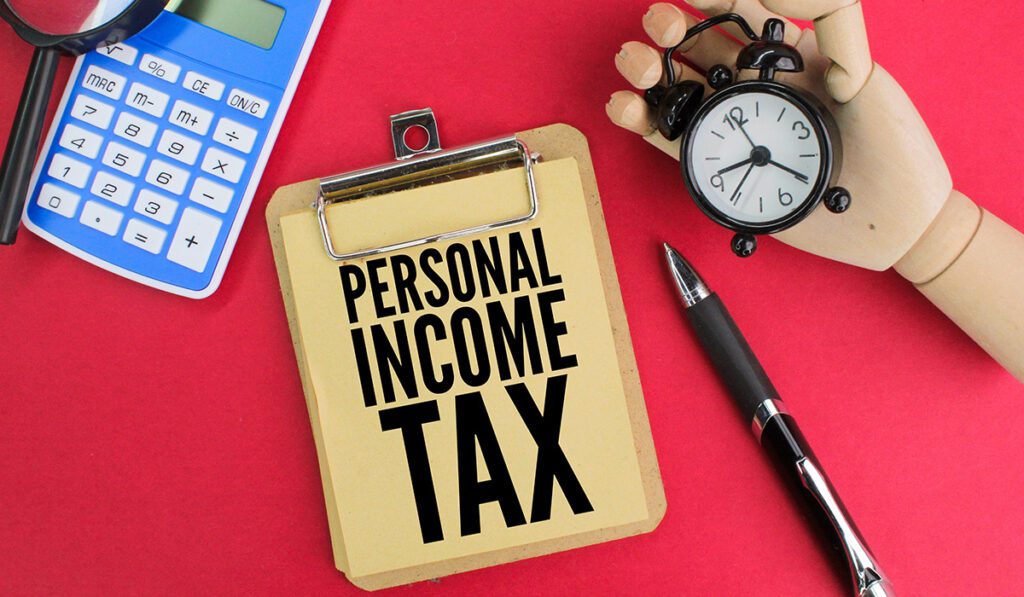

We are at the forefront of regulatory updates as we embark on an insightful journey into the revised landscape of personal income tax in Vietnam for the year 2024. In this article, we will unravel what the changes bring, providing you with a comprehensive understanding of the adjustments and ensuring you stay not only informed but also compliant in this evolving fiscal environment. Here, we will look into the details to navigate the nuances of the updated personal income tax in Vietnam and its revised framework.
What is personal income tax in Vietnam all about?
Personal income tax in Vietnam classifies income into ten distinct categories, each governed by specific deductions, tax rates, and exceptions. A tax resident is defined as an individual residing in Vietnam for 183 days or more within a calendar year or a continuous 12-month period from arrival.
Tax residents are obligated to pay personal income tax on their worldwide employment income, with progressive rates ranging from five percent (5%) to a maximum of thirty-five percent (35%). Non-resident taxpayers, on the other hand, face a flat rate of twenty percent (20%) on their income sourced in Vietnam.
Personal income tax in Vietnam and determining tax residency
In Vietnam, tax residents are liable for taxes on their global income, while non-tax residents are only taxed on income sourced within Vietnam. To be classified as a tax resident, an individual must meet one of the following criteria:
- Reside in Vietnam for 183 days or more within a 12-month consecutive period from the first day of arrival or in a calendar year.
- Hold a temporary or permanent residence card for Vietnam.
- Lease a property in Vietnam for 183 days or more in the assessment period.
Failure to meet these criteria designates an individual as a non-tax resident in Vietnam. However, caution is advised, as certain circumstances may still deem an individual a tax resident in Vietnam if they cannot demonstrate tax residency in another country.
Personal income tax in Vietnam and mandatory insurances
Employee and employer contributions for various insurances in Vietnam are outlined below, along with their respective maximum caps:
Social insurance
- Employee Portion: 8.0%
- Employer Portion: 17.5%
- Maximum Cap: VND 46,800,000
Health insurance
- Employee Portion: 1.5%
- Employer Portion: 3.0%
- Maximum Cap: VND 46,800,000
Unemployment insurance
- Employee Portion: 1%
- Employer Portion: 1%
- Maximum Cap: VND 99,200,000 (varies based on employment zone)
Do note that:
- Maximum caps represent the highest salaries used for insurance calculations. Earnings beyond these caps are not factored into insurance computations.
- The unemployment insurance cap varies by employment zone.
- Employee portions withheld from gross salaries are deductible for personal income tax, and employer contributions are not considered taxable benefits for employees.
- Foreign employees are not required to have unemployment insurance.
- Since July 15, 2020, certain industries may be eligible for a 0.2% decrease in Social Insurance contributions, specifically in the Occupational Diseases and Accident Fund portion, if they demonstrate not being administratively, not being prosecuted for criminal liability within 03 years from the date of proposal, a reduction in accidents and timely reporting. This reduction is applicable for up to 3 years.
Taxation rates for additional income
Explore the following personal income tax in Vietnam for different income types applicable to both residents and non-residents in Vietnam.
Tax rates based on income type for residents
- Business income: 0.5% – 5%
- Non-bank interest: 5%
- Dividends: 5%
- Sale of shares (public): 0.1% of sales proceeds
- Capital transfers: 20% of the net gain
- Sales of real estate: 2% of sales proceeds
- Income accumulated through copyright, franchising, or royalties: 5%
- Income accumulated through prizes, inheritances, or gifts: 10%
Tax rates based on income type for non-residents
- Business income: 1% – 5%
- Non-bank interest: 5%
- Dividends: 5%
- Sale of shares (public): 0.1% of sales proceeds
- Capital transfers: 0.1% of sales proceeds
- Sales of real estate: 2% of sales proceeds
- Income accumulated through copyright, franchising, or royalties: 5%
- Income accumulated through prizes, inheritances, or gifts: 10%
Corporate tax in Vietnam: Non-taxable categories
On the flip side of corporate tax in Vietnam, certain income from various sources, including capital contributions, joint ventures, and collaborations with regional businesses, is taxable after corporate tax payments. Additionally, revenue streams from activities such as cooperatives in salt production, aquaculture, agriculture, direct technical services to agriculture, and businesses with a significant percentage of employees facing specific challenges are exempted from taxation in Vietnam.
Taxable corporate tax in Vietnam
Corporate tax in Vietnam encompasses revenue from typical sources such as production, goods trade, and service provision, as well as other sources such as real estate sales, asset ownership or use, earnings from asset transactions, interest, and recoveries from emergency reserve funds.
Debt recoveries, undisclosed company income from previous years, and income from production or business ventures outside of Vietnam also fall into this category. Various income streams, including those from asset-related transactions and international business activities, contribute to the overall taxable income.
Personal income tax in Vietnam and rates of employment taxation
For resident taxpayers, worldwide employment income falls under personal income tax at progressive rates ranging from five percent to a maximum of 35 percent. This includes salaries, allowances, subsidies, and various forms of remuneration. Non-resident taxpayers, on the other hand, face a flat 20 percent personal income tax rate on their income sourced in Vietnam.
Vietnam personal income tax rates
- Up to 5 million VND (up to 200 USD): 5%
- Over 5 to 10 million VND (over 200 to 400 USD): 10%
- Over 10 to 18 million VND (over 400 to 720 USD): 15%
- Over 18 to 32 million VND (over 720 to 1,280 USD): 20%
- Over 32 to 52 million VND (over 1,280 to 2,080 USD): 25%
- Over 52 to 80 million VND (over 2,080 to 3,200 USD): 30%
- Over 80 million VND (over 3,200 USD): 35%
Non-resident taxpayers face a flat 20 percent personal income tax in Vietnam on their income sourced within the Vietnam country.
Benefits and incomes exempted from taxation
While the definition of taxable income is comprehensive, certain specified benefits are excluded from taxation and categorized as non-taxable allowances. The eligibility for these allowances is contingent on supporting vouchers or company policies associated with each type. Notable non-taxable allowances encompass:
- Yearly round-trip airfares (1 time) for expatriate employees returning home or Vietnamese working abroad.
- School fees (excluding tertiary education) for the children of expatriate employees or Vietnamese individuals working abroad.
- Mid-shift meals are subject to a cash cap and a maximum non-taxable amount if provided directly to employees.
- One-time relocation expenses for expatriates arriving in Vietnam for employment and for Vietnamese individuals returning from working abroad.
- Wedding or funeral allowances and benefits
Compulsory insurance and additional income streams that remain non-taxable include:
- Uniforms are subject to a cash cap and a maximum non-taxable amount if provided directly to employees (currently VND5,000,000 per year).
- Benefits provided collectively, such as memberships, where an individual beneficiary is not identified.
Moreover, additional non-taxable income encompasses:
- Earnings from deposits with banks and credit institutions.
- Payments from life and non-life insurance policies.
- Retirement pensions collected from the Social Insurance Fund.
- Property transfers between direct family members.
- Inheritances and gifts received from immediate family members.
- Retirement pensions derived from voluntary insurance plans.
- Casino winnings.
Personal income tax in Vietnam and double taxation agreements
Why it matters
For individuals who work or invest across borders, one of the most pressing concerns is being taxed twice on the same income. To address this issue, Vietnam has signed Double Taxation Agreements (DTAs) with around 80 countries. These agreements are an important feature of the country’s tax framework, ensuring that personal income tax in Vietnam is applied fairly and in line with international standards.
How it prevents double taxation
The central purpose of a DTA is to determine which country has the right to tax a specific type of income. For instance, under many treaties, income such as dividends, interest, or royalties may be taxed at a reduced rate or exempted in one jurisdiction to avoid double taxation. For foreign residents in Vietnam, it provides significant relief, as income earned abroad or through international business activities is often already subject to tax in another country. By applying the terms of a DTA, they may claim tax credits or exemptions that reduce their overall tax liability.
Compliance benefits
Another benefit of DTAs is the clarity they bring to compliance obligations. Taxpayers can avoid uncertainty by relying on established treaty provisions and by providing required documentation, such as proof of tax residency or evidence of taxes paid overseas. Avoiding unnecessary double taxation not only lessens the financial burden but also minimizes the risk of disputes. For expatriates, cross-border workers, and investors, understanding the application of DTAs is vital because it directly affects their effective tax rates and financial planning strategies.
Considering the tax environment
As Vietnam continues to attract international talent and investment, DTAs strengthen the country’s competitiveness. They help create a predictable and fair tax environment while safeguarding individuals from excessive tax burdens. For anyone subject to personal income tax in Vietnam, awareness of relevant treaty provisions is an essential part of managing their obligations effectively.
Penalties and deadlines related to personal income tax in Vietnam
Key filing deadlines
Complying with filing deadlines is one of the most important responsibilities for individuals subject to personal income tax in Vietnam. The system requires both residents and non-residents to submit accurate tax declarations and pay any outstanding tax within defined timelines. For most taxpayers, monthly withholding returns are due by the 20th of the following month, while annual personal income tax finalizations are generally due by the end of April each year. For expatriates leaving Vietnam, the law requires finalization within 45 days of departure.
Consequences of missing deadlines
Late filing or payment carries specific penalties. Taxpayers who miss deadlines may be charged interest on the unpaid amount, often calculated daily until the liability is settled. In addition, underreporting income or failing to file a required return can trigger administrative fines, which increase in severity depending on the nature and length of the violation.
Why timely compliance matters
Beyond monetary penalties, repeated or serious breaches may subject individuals to closer scrutiny from the tax authorities, further complicating their compliance efforts. By adhering to deadlines, individuals not only avoid penalties but also maintain transparency in their financial dealings. For those subject to personal income tax in Vietnam, timely compliance plays an important role in minimizing risks, safeguarding financial stability, and maintaining good standing with the authorities.
Finalizations for personal income tax in Vietnam
Individuals operate on a calendar year for taxation, with employers mandated to withhold personal income tax in Vietnam either monthly or quarterly. Other taxes, like dividends, are typically withheld at the source or self-declared as events occur. For annual tax finalization, individuals should assess whether it is necessary by the personal income tax in Vietnam finalization deadline.
- Single-employer income or limited additional income allows employer authorization for finalization by March 31.
- For Individuals self-settle income tax return, individuals must finalize and payment by April 30.
- Those with straightforward tax matters not owing taxes may skip finalization, but all are encouraged for future complexities.
Enhancement of tax deductions
Vietnam’s Ministry of Finance is working on rules to increase personal income tax deductions, aiming to better reflect inflation, according to Finance Minister Ho Duc Phoc. The current deductions, set from 2020 at VND11 million ($440) for taxpayers and VND4.4 million ($176) per dependent, are considered outdated.
The proposed changes seek to address the impact of post-pandemic inflation, with a focus on meeting minimum living conditions. Despite a record 2022 collection, personal income tax accounted for only 11.4% of total tax revenues, prompting the need for updated exemption figures. The current personal income tax in Vietnam ranges from 5% to 35%.
Methods of reducing personal income tax in Vietnam
As a tax resident in Vietnam, you can utilize two legal avenues to reduce your tax rates: Deductions for family-related circumstances and deductions for donations.
1. Deductions for family-related circumstances
- Automatic deduction of 11 million VND (approximately US$471) per month from your taxable business or employment income.
- Additional deduction of 4.4 million VND (about US$188) per month for each qualifying dependant (children under 18 years, spouses, or parents with low or no income).
2. Deductions for donations
- Automatic deduction of 11 million VND (approximately US$440) per month from your taxable business or employment income.
- Additional deduction of 4.4 million VND (about US$176) per month for each qualifying dependant (children under 18 years, spouses, or parents with low or no income).
Additionally, taxpayers facing difficulties due to natural disasters, accidents, or rare illnesses may be considered for a reduction in payable tax, as determined by the tax authority.
Why is Premia TNC your best bet?
Updated compliance:
- Stay abreast of dynamic Vietnamese tax laws and regulations.
- Ensure adherence to evolving business standards and legal requirements.
Expert on-call support:
- Access a dedicated team of tax and accounting specialists.
- Receive prompt and reliable advice for your business needs.
Efficient resource allocation:
- Free up time and financial resources for core business activities.
- Avoid the cost and hassle of recruiting an in-house team.
By opting for Premia TNC’s services, businesses can ensure constant compliance, expert assistance, and efficient resource management, allowing them to focus on business growth and development.
What qualifies an individual as a tax resident in Vietnam?
An individual is a tax resident in Vietnam if they reside in the country for 183 days or more in a calendar year, hold a temporary or permanent residence card, or lease property for 183 days or more during the assessment period.
What deductions apply to personal income tax in Vietnam?
Deductions include automatic monthly deductions for family circumstances, compulsory insurance (social insurance, health insurance, un-employment insurance), approved charity contributions, and certain social security contributions.
















